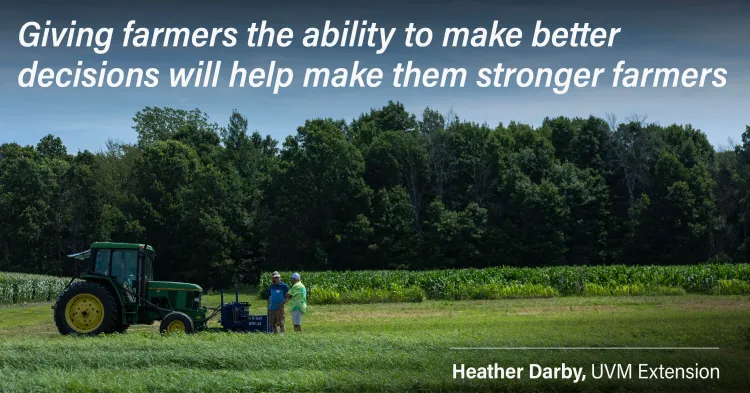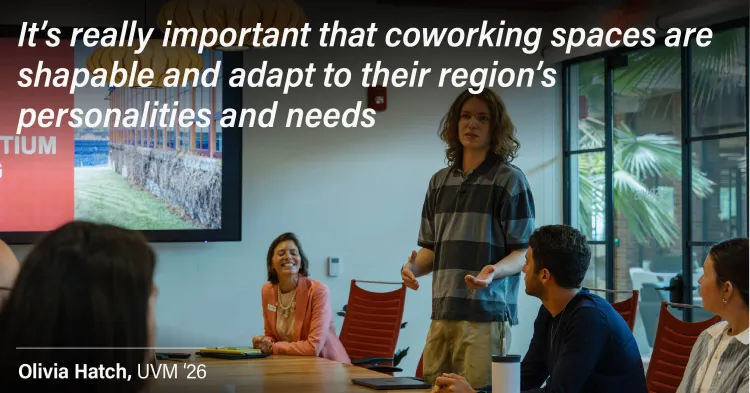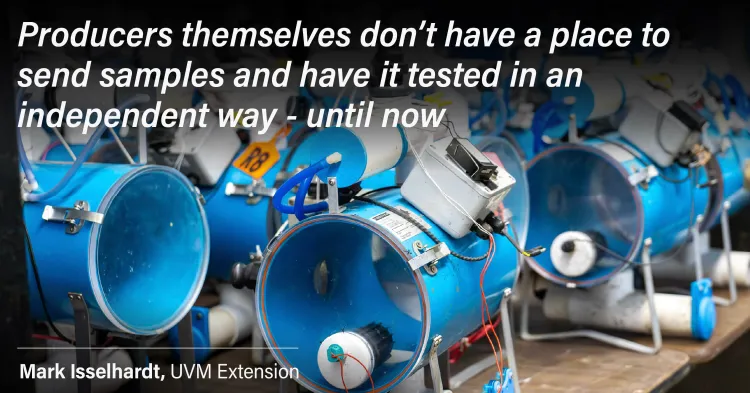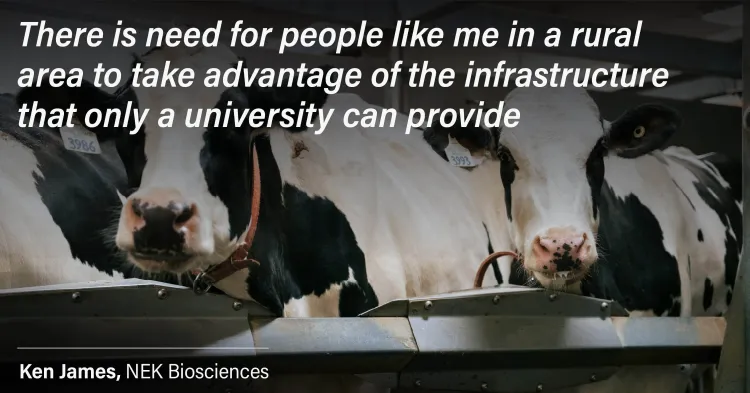Climate Jobs Campaign — Cultivating a Diverse and Inclusive Green Workforce
A partnership to help create the workforce needed to meet the demands - and seize the opportunities - of Vermont’s future climate economy.
Community-Based Organization to Foster Rural Immigration
This partnership is working to establish a community-based organization to support a new American community that is resettling in the region.
Water Resources Workforce Development
A project to attract young workers to rewarding careers in the drinking water and wastewater industry, where their skills can be foundational to Vermont’s future economic development and environmental resilience.
African Diaspora Foodways Institute of Vermont
Clemmons Family Farm and its UVM partners are developing an institute to support the creative efforts of African diaspora culinary entrepreneurs. The initiative promises to help spark new Vermont businesses that will contribute to Vermont’s rich food tourism heritage.
Every Day Counts: Reducing Absenteeism in Vermont Schools
This project unites UVM researchers with educators and health practitioners to research and support methods that bolster school attendance and wellbeing among Vermont's youth.
VITAL VT: Virtual Integration for Telehealth Access through Libraries in Vermont
People in Vermont’s rural communities often lack adequate access to basic healthcare services. UVM experts and their community partners are exploring whether it would be possible to meet this need with telehealth services delivered through local libraries.
Instilling Resiliency in Vermont Agriculture Through Farmer-led Research and Implementation of Regenerative Practices

UVM researchers have partnered with farmers' watershed organizations to transform research into actions that can simultaneously boost farm production and environmental health.
Innovation Hub Consortium

A partnership of innovation hubs from across Vermont designed to maximize their creative and economic impact.
Maple Syrup Quality Testing Lab

The UVM Extension Maple Program is working with industry partners to establish a lab to standardize the testing and grading of pure maple syrup. This resource would benefit Vermont's individual maple producers and the industry as a whole.
Commercializing the CorioGraft Wound Healing Gel

NEK Biosciences is developing CorioGraft wound healing gel to more effectively heal wounds from which dairy cows often suffer; wounds that can be dangerous for cows and very costly for farmers. This grant is supporting NEK Bioscience's partnerships with several UVM departments to further develop the scientific and business foundations for CorioGraft.
Improving Access to Best Practice Asthma Care Among Vermont's Rural School Children
A collaboration to improve access to essential healthcare for children with asthma in rural Vermont schools. This partnership includes UVM faculty and students, community partners, primary and specialty care clinicians, and parents to of children with asthma.
PREVENT/SOS-VT: Prehospital Vermont EMS Buprenorphine Treatment
A pilot program that equips first-responders to administer buprenorphine to people suffering from an opioid overdose. This practice has the potential to reduce recurring overdoses, and put patients on a faster path to addiction recovery.
FOREST — Flexible Optimization for Reliable Electrification and Sustainable Transition
Research to support the increased grid demands of an electrified economy, while also allowing Vermont's electric utilities, and their customers, to potentially save millions of dollars.
Microbots for Environmental Remediation
UVM researchers and their partners at Applied Research Associates are working to develop microbots that could be used to remove microplastics and other contaminants from our ecosystems.
Seeding UVM’s Capacity to Develop a Statewide Mesonet that Translates Water Research to Community Emergency Preparedness
UVM researchers and their state partners are working to establish a more complete network of weather monitoring stations that could help communities better prepare for extreme weather events.
Accelerating Vermont Food Hub Development and Collaboration with Supply Network Analysis
UVM researchers and their partners are using spatial analysis tools and stakeholder engagement to better understand how food from Vermont farms is grown, processed, delivered and marketed. The goal is to help improve the entire supply chain and build a more resilient food system in Vermont.
VERTA — Vermont Evaluation of Rural Technical Assistance
This initiative partners UVM, state agencies, and Technical Assistance service providers to create actionable recommendations for an integrated approach to delivering rural technical assistance to Vermont’s towns.